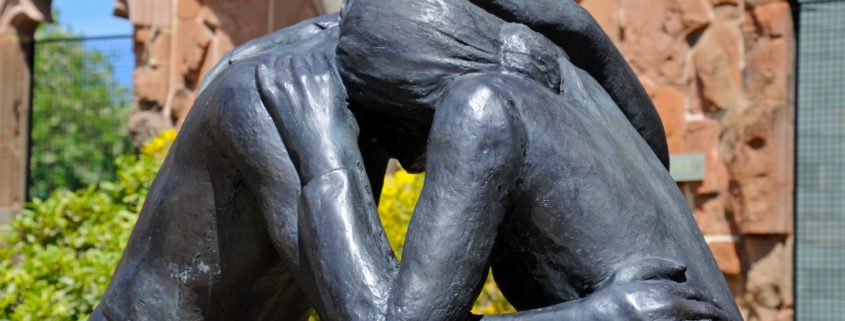Many years ago, as a Vicar I met a man who had not spoken to his father for seven years. The quarrel had begun over something small. But neither would apologise and make the first move. Both were hurting. The man’s two young daughters had no contact with their grandparents.
This was my first example of a deep family feud. Sadly I’ve seen many more since then. Sometimes they start because of an incident everyone remembers. More often, people drift into not having any contact with close family. Indifference leads to neglect which leads to division. If we do not deliberately tend our relationships, they will fragment. This is true of marriages and partnerships, of adult children and their parents, of siblings separated by distance, of friendship.
The same truth applies to relationships between communities. I’ve been part of a group in Parliament looking at how to build a more cohesive society. We’ve been trying to take the debate about immigration to a much deeper level than the slogans of the referendum campaign a year ago. One of the most important factors in building a united city or town is having a plan. Left to themselves, communities grow apart or fragment. We need to be intentional about building a single society. The task needs to be owned by central and local government, by civil society and by individuals. It’s too important for the future to be left to chance.
And what is true between communities is true of nations. We live in an age where powerful forces seem to be pushing countries further apart. Britain is now redefining its relationship with Europe. The United Kingdom is under new pressures to fragment. The global situation is tense.
Today is Good Friday. This is the day when Christians reflect on reconciliation: working against this power to divide by drawing people and communities back together. The Christian faith takes very seriously the truth that left to themselves, relationships fragment.
Christians believe that Jesus Christ, God’s Son, offered his life on the cross to make peace. The cross makes possible a new peace between humanity and God so that people can find forgiveness, begin again and know God’s love for themselves. But the cross also makes possible peace between people so that families and communities and nations can be reconciled and made one.
Reconciliation is a profound gift. That is why the cross is placed at the centre of Christian life and worship. Many Christians wear a simple cross or carry one in their pocket. You will find crosses on display in every church, reminding those who come to pray that peace and reconciliation are the heart of our life together. Many of our church buildings are built in the shape of a cross when seen from above.
That is why on Good Friday, Christians everywhere will take time to reflect and remember the events of that Friday long ago when Christ was crucified in hymns and prayers and silence, in private and in church services. Sunday is Easter Day and we will celebrate the profound truth at the heart of our faith that God raised Jesus from the dead so that all can have life in his name. But first, today, we pause and remember this one, special act of love at the heart of our faith.
Jesus taught his disciples a prayer which has reconciliation at it’s very centre. He teaches us to pray: “Forgive us our sins as we forgive those who sin against us”. We are reconciled to God. But we are then called to be reconciled to others by taking the initiative and making the first move. That can be very hard indeed.
I met the man who had not spoken to his father because he was preparing to be baptised as an adult. He had recently become a Christian. Now he was realising what his new faith would mean. It meant he could not simply go on as before and be estranged. He had to make the first move. He did and there was a deep reconciliation in that family across three generations.
Good families, good communities and good international relationships do not happen by accident. They happen because people invest in them and work at reconciliation.
For Christians, Good Friday is a powerful reminder of what we believe God has done in Jesus Christ for us and for the whole world. Take time this week to ponder the reality of fragmentation and the wonder that is peace.
+Steven
Bishop Steven is the Bishop of Oxford


